#ok to reblog from me
Text
Blackbeard's Crimes Starters
Based on Blackbeard's wanted poster from OFMD. Send one (or more) for a starter based on the crime of:
Shoplifting
Horse rustling
Impersonating a vicar
Disturbing the peace
Climate change denial
Trespassing
Beat poetry
Smart casual attire at a formal function
Unlicensed midwifery
Excessive speed within a harbor
Improper use of a dive signal
Offensive semaphore
Wearing a wig as a hat
Failing to signal at a roundabout
Changing the word "God" to "Dog" in "God Save the Queen"
Commandeering a coffin
Excessive mirth at the funeral of a work colleague
Flash mobbing
Imprisoning a cat
Defacing the pyramids
Conspiracy theorizing the sacred geometry
Atheism
Proliferating religious propaganda
"Communism" whatever that is
Witchcraft
Potting ironic ashtrays
Bootlegging absinthe
Diluting gunpowder
Breaking curfew
Creating curfew
Plagiarism
Improper citations in an academic document
Neither ceasing, nor desisting
Providing inequal opportunities
Sticking it to "the man"
Bearing false witness
Cart rental under a fraudulent name
Echidna trafficking
Renting out an un-insulated abode
Inciting (a) riot (s)
Please air further grievances below [make one of your own!]
#ok to reblog from me#memes#meme#rp meme#ask box#ofmdrp#ofmd rp#ofmd roleplay#our flag rp#our flag means death rp#piracy rp#tatteredxsails:memesandstarters
7 notes
·
View notes
Text

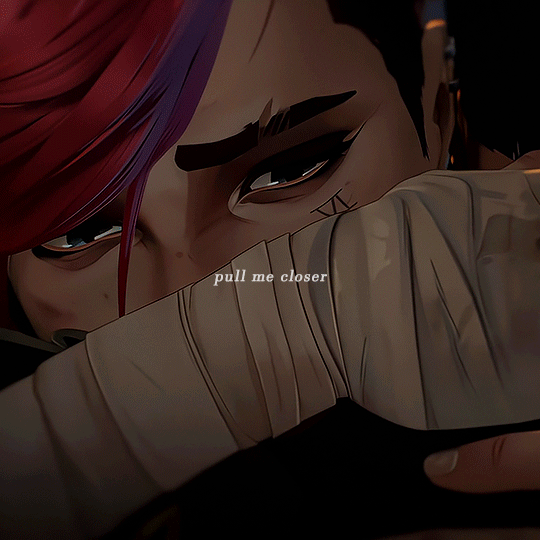

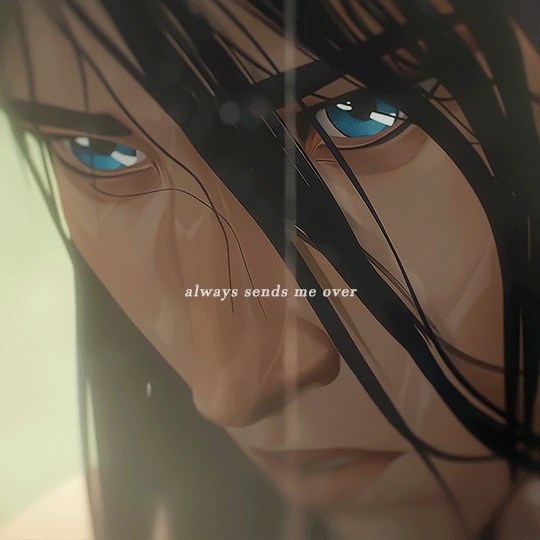

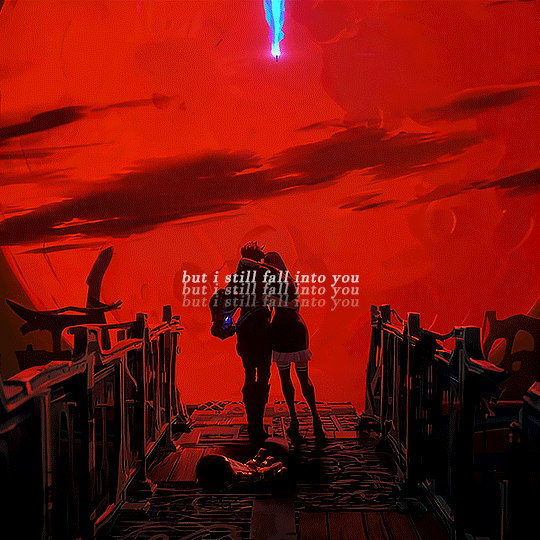
PVRIS — "Oil and Water"
"If you give me your cold shoulders
I'll bravе the storm and keep my arms wide open
We're oil and water, it's true
But I still fall into you"
#OK EVERYONE I MADE A MISTAKE IN THE LYRICS pls reblog this version instead skdjfksdfjs oops#caitlyn was singing this song in the shower i just know it LMAO girl rlly got the gay yearning song in this show shes down bad#caitvi#animationedit#arcaneedit#vi#wlwedit#arcane#arcane league of legends#league of legends arcane#caitlyn#caitlyn kiramman#netflixedit#piltover's finest#arcane lol#vi arcane#arcane vi#media: arcane#type: gif#s1 ep 5#s1 ep6#s1 ep7#s1 ep8#s1 ep9#im always so ???? with typography lmao im not every good at it so i kept it super simple#also i get why they say the song was cut from the soundtrack i cant think of any scene where i can put this song into#also ugh this took me an hour and a half to make skkdjdjd for a simple edit LMAO i couldnt get inspired for the typography and just#scrapped everything all tgt lol
727 notes
·
View notes
Text
y'know what. sometimes there is something wrong with you. and i don't mean in a "you are broken and that makes you unworthy" way, just in the "your brain/body does not work the way it's expected to and that's why things are so hard" way
like as someone who grew up constantly being told there was nothing wrong with me and i just had to try harder to clean/socialise/work, knowing i had ADHD earlier would've saved me a LOT of guilt. knowing i have IBS would've prevented a lot of pain/embarrassment from not being able to manage it yet. i wish someone had told me there was a reason i couldn't do things instead of just telling me i was fine. people reassuring me i didn't have any issues to spare me the shame of being "different" only made me feel worse about not being able to function like everyone else!!!
idk sometimes i just wish i knew there was something different about me sooner bc then i would've had an explanation and a way to get better instead of just a lot of self loathing
#ramble#ok to reblog#can you tell living back home has brought up a lot of unresolved stuff#the amount of times i said 'there is something wrong with me' and i was told i was fine just made me feel like i was the problem#and that i should just try harder instead of there being a physical barrier that i couldn't control#idk there's just a lot of anger from realising that it wasn't my fault and NOBODY tried to help me#@ parents: different doesn't mean bad. help your fucking kids
1K notes
·
View notes
Text
Everyone understands that constantly conflating queerness with “weird kink” is harmful, right? Wrong, apparently! It has been disturbing and concerning to witness the increasing frequency of people arguing that kinks and acts of incest, pedophilia, zoophilia, etc. are innate fundamentals of queer existence and therefore should be accepted. Because, surely, the years of rhetoric pushed on the queer community (especially towards transwomen) being sexual predators, child molestors, and abusers, would not be impacted in any way by these arguments. Note: this is sarcasm.
Yes, these kinks are not taboo. The foundation of multiple societies is built on pillars of CSA and incest. There are major genres of porn (“stepfamily! just turned 18! underage whore!”) that are indicative of just how NOT taboo, how normalized these acts and concepts are. None of this, however, implies a distinct queerness to any of these things, it is a dark and perverse aspect of humanity as a whole. If you are going to create community spaces centered around these kinks and openly profess your love for it, nobody can stop you (reflect on the looks you get, however, when your argument leaves your cesspool wind-tunnel) but do not mistake your abhorrent desires to be intrinsic with your identity, with the identities of the people fighting for years to be seen as anything other than the monsters under children’s beds all because of their queer identity. You are contributing the same harm as those who use this language to attack our community, regardless of your place in it, and you should be ashamed of that.
#this is ok to reblog#despite my fear of it getting traction in the wrong places#anyway this doesnt really cover my thoughts on this as a whole#i condemn these spaces & mindsets heavily and i encourage you to disengage from me#if you use excuses like this#NOTE: obviously this is not about intrusive thoughts. dont twist my words. different subject entirely#ask 2 tag im not tagging it right now#memoire
297 notes
·
View notes
Text
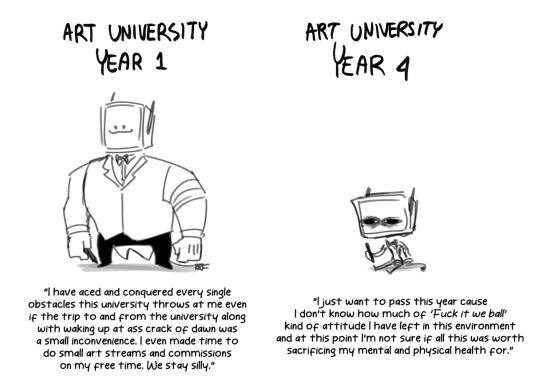
Oh how things have changed 😔
621 notes
·
View notes
Text
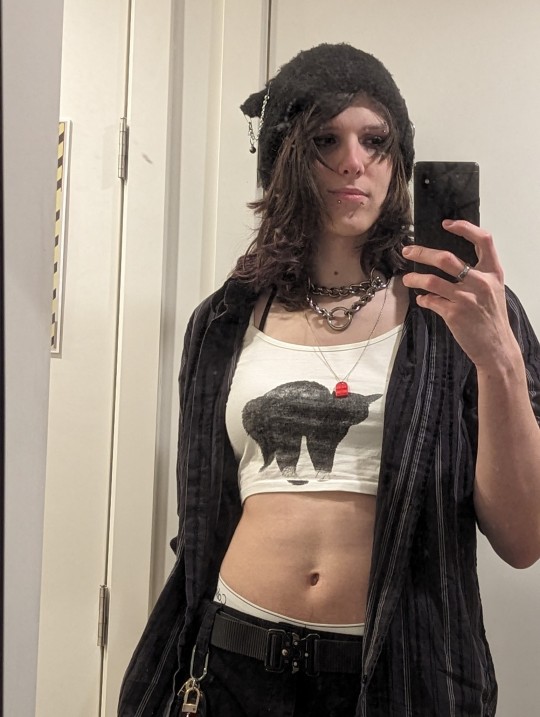

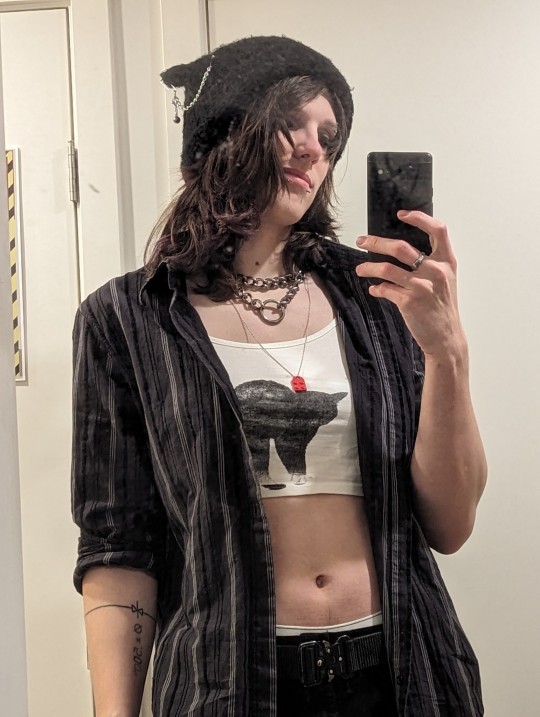

help I've been possessed by an emo girl
#i stole this button-up from my gf lol#nixie pics#me#reblogs ok#trans#transgender#transfem#trans girl#tgirl#mtf#girls like us#girlslikeus
311 notes
·
View notes
Text

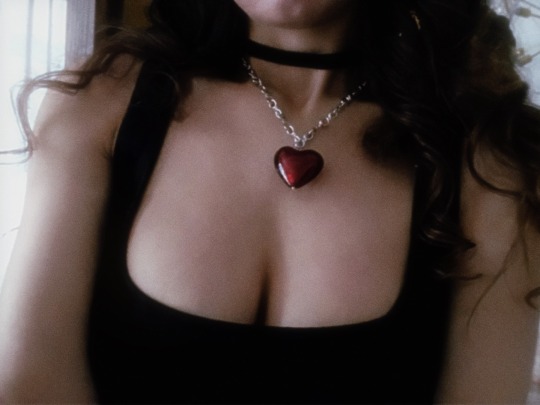
31.3.24
271 notes
·
View notes
Text
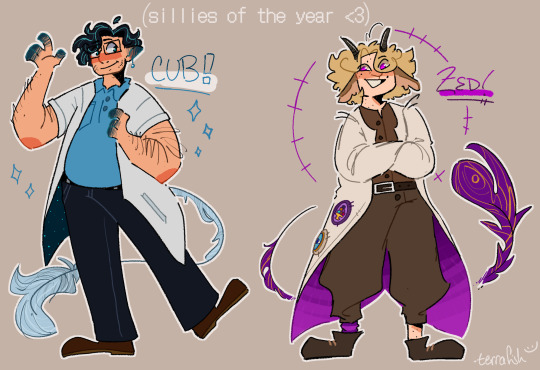
goofy hermit doodles!! because uhh why not!!
#cubfan135#zedaph#hermitcraft#hermitcraft fanart#sorry for making zed purple-coded do you still love me /j (it's kind of a magenta. so.)#this was my first time drawing cub (unless you count scraps of doodles from like 2019 that i probably lost a while ago) !!#and as such it was a definite learning process! i could definitely draw him better now i think but this one turned out okay for now#i still feel like i didn't do him justice though.. i'll try again tomorrow#zed on the other hand came out fantastic and then i proceeded to not be able to draw him well ever again (he's from a few days ago)#fun fact i was trying to write a desert duo-centric little story a couple days ago and i randomly put cub in as a placeholder character for#-scar to talk to in a scene and my entire story accidentally became about convex instead. whoopsies#also zed lives in scar's basement. cub does too but he actually pays rent. they don't know about zed so it's funny#scar's house is a theme park. his basement is a hole#it's a whole thing. why am i talking about this? i don't know i'm really tired ok#doodles#reblogs super appreciated as always :D
522 notes
·
View notes
Text
not to be a sociologist on main but the responses of like “of course high femmes don’t ‘not do anything,’ we put effort in through xyz means” don’t really do it for me. like instead i wanna ask why is the idea of sex that isn’t (physically) “reciprocal” morally reprehensible to you? why do you prioritize reciprocity over consent? why is laziness a bad thing, and why do you talk about leisure sex in terms of work? do you actually want to be doing what you’re doing?
anyway high femme 🤝 ace 🤝 sex worker solidarity because i really only see these kinds of conversations happening in the latter two spaces
#maybe it’s just me but the majority of real time analytical conversations i see from high femmes are about butch/femme not stoneness#femme#stone femme#high femme#pillow princess#mac.txt#ok to reblog if you’re so inclined#but what gets it for me is high femme
2K notes
·
View notes
Text
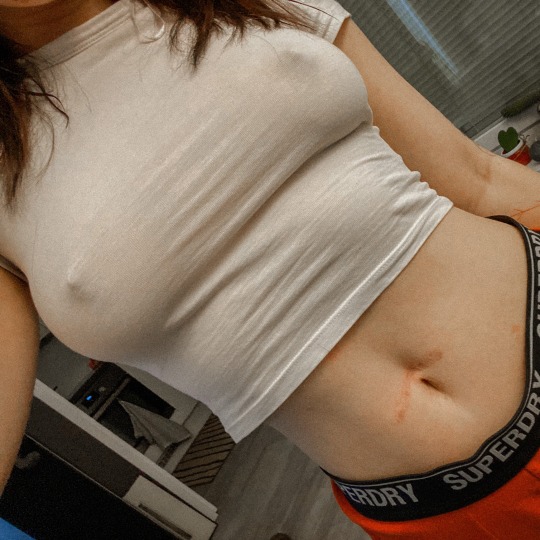

work from home fit 🌸
#me#mine#kaarnalaiva#selfie#girls of tumblr#my body#tumblr girls#ok to reblog#the stringy thing from my shirt is hanging out and it bothers me now but I didn’t notice it while taking the pics 🫠
339 notes
·
View notes
Text
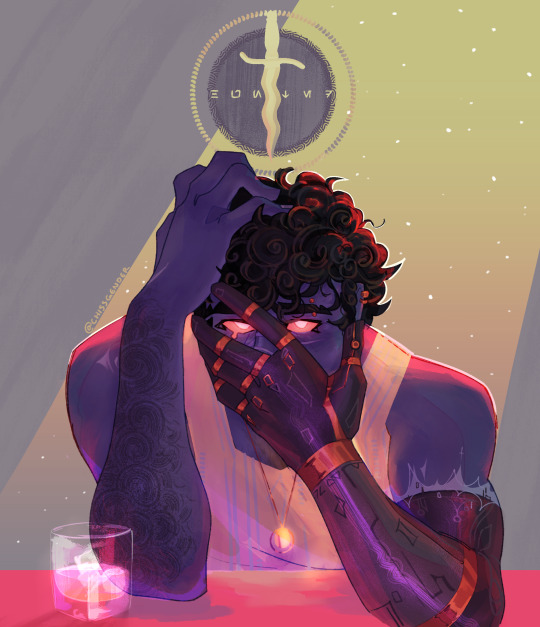
When the whole galaxy wants you dead but at least you’re bisexual
b&w version bc I like it. That’s all. The aurebesh says “hunted” btw.
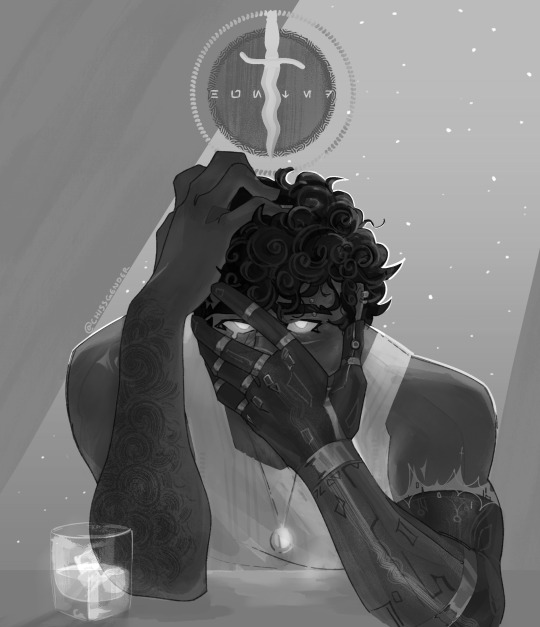
#saker#chiss oc#star wars oc#sw oc#my art#art tag#if u like it consider reblogging as well? thanks 🥰#also PLEASE I know the arm is actually on the wrong side forgive me!#i knew it was the case from pretty early on but it when I sketched this I just wasn’t thinking it through and it looks better like this ok#trust me
87 notes
·
View notes
Text
young adult, new adult, and fantasy fiction: the audience of a book is who reads it
title clumsily based on the purpose of a system is what it does.
before we begin, I want to focus a bit on defining our terms. young adult, new adult, adult, science fiction/fantasy, speculative fiction, contemporary romance - all of the terms I will use in this post are created by marketing companies and readers, and all of them have fuzzy and subjective applicability to any given book. there is no objectivity in cataloging, which is the lens through which I approach knowledge organization projects like this. there is no definitive answer to what any given book or genre "is", because these categories are not fixed values. instead, their values are expanded and developed by what gets placed in which category, by whom, and what criteria they base that decision on. that's what I want to discuss.
to provide some context: debates over age categories and who is reading what books for which age ranges currently dominate discussions among publishers, authors, librarians, and readers. ages of characters in YA are skewing up, sales are slowing down. young adult as a category has existed for 50+ years, but it is currently undergoing some growing pains. here's one more article for good measure. new adult is a term created by the publishing industry in 2009, which developed in fits and starts despite multiple bestselling authors publishing under the category. oh well. in 2015, sarah j mass published her new book, a court of thorns and roses, which is widely regarded as a turning point for the popularity of new adult (more on the classification of ACOTAR itself in a moment). NA stalled out for many years, but has recently very quickly grown in popularity, especially for romance readers on booktok. some of the most popular books listed under new adult on goodreads are colleen hoover's it ends with us and it starts with us, ali hazelwood's check & mate, and rebecca yarros' fourth wing.
I want to look at two of these currently very popular authors as case studies to really dig into what new adult has come to mean.
in this 2014 interview, SJM discusses her currently running throne of glass series and the upcoming release of ACOTAR in 2015. she notes that the book is intended for "a slightly older YA crowd (aka steamy times ahead!)". earlier in the interview, she dodges a question about whether throne of glass will be YA or NA by saying she appreciates her teen and adult readers - if I had to guess, the label was still too new and publishers didn't want to alienate anyone. in 2023, I can't find anything on her website or bookseller sites that specifically identify the series (or any of her series) as YA, NA, or adult. however, Goodreads (which relies on user generated tags and is, to put it lightly, a mess wrt information organization) firmly classes ACOTAR as YA - almost 9k tags in young-adult and ya (lack of authority control is just one aspect of the mess), as opposed to about 3.5k new-adult. the thing is, though, ACOTAR comes up in essentially every blog post and article I read on the definition of new adult. it is a flashpoint in the discussion: it either did or didn't restart the term, it is or isn't too sexually explicit to be classed for teens, the writing is filled with young adult tropes and this does or does not matter. the answers to these questions aren't particularly important to me, but it's very interesting to see how people are attempting to draw those boundaries. I took a quick census of how SJM's series are classed in my library system. her throne of glass series is uniformly shelved in YA; ACOTAR is mostly YA with a few copies in adult, and her newer crescent city series is mostly adult with a few copies in YA. I do think that any discussion of ACOTAR is partially colored by this divisive relationship to the new adult category itself, so I'd also like to bring in a much newer book facing similar conversation.
if you follow this blog you might already know that I have an entirely non-neutral relationship to ali hazelwood; I love her books both as books and as cultural objects deserving of study. previously, she published three adult romance novels and a set of adult romance novellas, which all fall firmly and inarguably into those defined categories, based on age range and content (I have an argument for the love hypothesis being a horror story, but that's a different conversation). last year, she published her newest book, check & mate, as a young adult romance. it was widely marketed as such by the young readers imprint at putnam. however, on reading it, I (and many goodreads commenters) were surprised to find that it aligned more with some hallmarks of new adult. the characters are out of high school, and the challenges and growth moments are more focused on evolution, rather than coming of age. one blog post I read made the argument that YA is about high school firsts and NA is about adulthood firsts. this is amorphous, partially because there is no real one life path into adulthood by which to judge this, so let's switch focus to something more concrete: sex. in each of Ali's adult novels, there are a few explicit sex scenes. they're not as explicit as other romance novels, but they're definitely not fade-to-black. in check & mate, characters have sex, but it happens entirely off-screen and any discussion is fairly chaste or, at most, relying heavily on implied content. this is a real disconnect to me. much of NA lit (ACOTAR included) is quite sexually explicit. among those most popular NA books on goodreads, there are many books that get marketed specifically for their sexual content (spicy🌶️ to the tiktokers, smut to everyone else). to me, this cements check & mate as a YA novel - if she was going to write a book with explicit sex, like her others, she could've. she's mentioned in interviews that her chess novel concept originally featured older characters, and she aged them down once she realized what kind of story she wanted to tell. to me, it is telling that moving from adult to YA creates more clumsy caution around the handling of sex, as opposed to SJM, whose books "aged" upwards over time.
another interesting example I've noticed in the emerging NA space is how the age category intersects with genre. YA as a category has a pretty expansive genre playing field - we've all read YA fantasy, contemporary romance, historical fiction, action/adventure, issue novels, etc. NA so far seems pretty exclusively limited to romance as a main focus, especially in the most popular offerings as discussed above.
I've seen many a tiktok alleging that despite the drawn out fight scenes, extensive lore, and huge interconnected web of characters, the ACOTAR books are not "real fantasy." even more so for the fourth wing books. I've seen these books compared to Tolkien, as if to say, well, if you didn't invent a language, you're not really on the same level. that's entirely unfair, imo - plenty of fantasy doesn't engage at that level. but there is a wide array of contemporary fantasy I do think we can contrast with ACOTAR and other popular NA series.
we've discussed some of the hallmarks of YA and NA as categories: the age range of characters, coming of age, explicit sex for NA. i'd add fast-paced, immersive writing, especially in first person or close third, because so much of the appeal described on booktok is a book sucking you in completely. now, i want to bring up a few books that, on the surface, might check several of these boxes: dune by frank herbert has an 18yo protagonist, and the first book is very much a coming of age story. eragon (christopher paolini) and the name of the wind (patrick rothfuss) focus on a young person coming into their magical abilities through school/mentorship, a similar setting to many YA series. mistborn (brandon sanderson) and game of thrones (george r.r. martin) both have prominent protagonists that are 18 or younger when the story starts. of all these series, only eragon has young-adult as its most popular age-related tag on goodreads, and eragon was, at the time of release, very specifically marketed to and shelved in young adult in bookstores and libraries. some of these books have explicit or non-explicit sexual content, but only GOT has even close to as much as your average NA novel (to my knowledge).
i am not alleging that any of these books should be classed as YA, necessarily. but the glaring difference in their marketing and readership does point to one thing: these books are largely about men, and they are all written by men. i am not the first person to point out this gender gap in fantasy writing, and i don't have anything particularly new to say about it, except to bring it back around to my original point. none of these novels "are" adult fiction, and plenty (plenty!) of teenagers read them, in an interesting reversal of the trends in YA. who is making the decisions about where these books go, and why? what can we draw out about the books and their marketing? how is the future of "adult fantasy" shaped when these are the benchmarks by which we measure new entries?
i did also look into a few of my own favorite sci-fi series by women to see how they ranked by similar parameters. parable of the sower by octavia butler, featuring an 18yo protagonist and sexual content, has no age category at all in the top 20 most popular goodreads tags. it's in adult fiction in every library in my system that owns a copy. ive seen gideon the ninth (18yo protag, and yeah lets go ahead and say explicit sexual content) on YA shelves in bookstores, but its adult tag on goodreads is more popular, and almost every library in my system has it in adult. in my opinion, these books are important in rejecting the "women write YA, men write adult" narrative around speculative fiction, but they're not necessarily an exception to a different trend. it is not difficult for me to think of more adult scifi/fantasy books by women, because i actively seek them out. however, almost every single one of them has a protagonist under 25, as is the case with so much of the adult fantasy written by men listed above. last year, i read the adventures of amina al-sirafi, by s.a. chakrabotry, which was (i believe) the first non-contemporary/realistic fiction book ive ever read with a middle aged mother as the main protagonist. the book club at my library branch, mainly composed of middle aged and older women, read it, and expressed such genuine joy and excitement over a fantastic, adventurous book featuring a woman they saw themselves in. representation really does matter, and it matters to everyone, not just young people. but that's a different soapbox.
young readers are extremely picky. i've watched many a teenager (or younger) browse the YA section and turn up their noses at books with a cringey cover, an overly dramatic blurb, or just because. marketing books to teens is hard. booktok is an incredibly powerful marketing tool and divisive social force. it skyrockets an author one day and by the next week, other accounts are tearing that same author to shreds. in this environment, its no surprise that the sensationalized books - extremely good or extremely bad, blatantly sexual, shocking, consumable - become flashpoints of discussion. who should be reading ya? who is it for? what is inappropriate for young teenagers to read? what is inappropriate for adults to read? i think about these topics a lot, especially as what the publishing industry terms a "gatekeeper" - i'm a children's librarian; i control the access teenagers in my community have to these books. i take that role seriously, and i want to be thinking deeply about the books i put in my YA section and who will read them. our decisions, about where we class books, how we label and present them, how we discuss them: that is part of what dictates what genre and age classification a book "is", in addition to marketing.
#okay.... been working on this on and off for months but im finally fucking finishing and posting an essaY!!!!#2k words on genre classification lfggggg#please let me know what you think.... very open to thoughts esp from people who read these areas !!!!#ok to reblog btw :>#frames
102 notes
·
View notes
Text
fanfic authors will see a flop movie and say "is anyone gonna write a heartwrenchingly beautiful story about this" and not wait for an answer
#the talkies#ao3#i have made a post extremely similar to this before but my truth simply isnt appreciated ok#also i cant find it#also pls share your fave box office bombs with amazing fic#man from uncle and magnificent 7 come to mind first for me#bvs also counts in my heart#dont be surprised if i self reblog i need people to agree with me
108 notes
·
View notes
Text

Righteous Hand of The Father
What Were You Made For?
#ultrakill#gabriel ultrakill#az doods#not gonna lie I’m really proud of this one#I genuinely do not know how to draw a helmet from this position I struggled so bad#I found zero reference#and I’ve stared at it for far too long#is this any good?????????#I SAW THE LIKES#YAYYYYYYYY#phew there’s 0 notes for 20min I thought I did Bad (likely just a time zone thing I probably did ok)#<33333#edit:#hmm#did I do Bad????????#if ur reading my notes feel free to tell me I Did Bad#I genuinely cannot tell right now#would’ve deleted but there’s already one (1) reblog so I’ll let it live#grant it mercy from being incinerated#o7
95 notes
·
View notes
Text
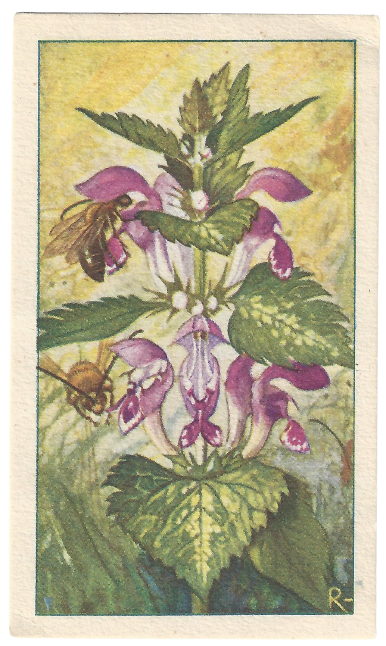





verkade's album - "de bloemen en haar vrienden" ("the flowers and her friends"), 1934
#scanned by me! from my own personal collection. as requested by ris. :-)#bugs#ok to reblog if you wish!#if you tag these as c*ttagec*re i will attack and maim you
125 notes
·
View notes
Text

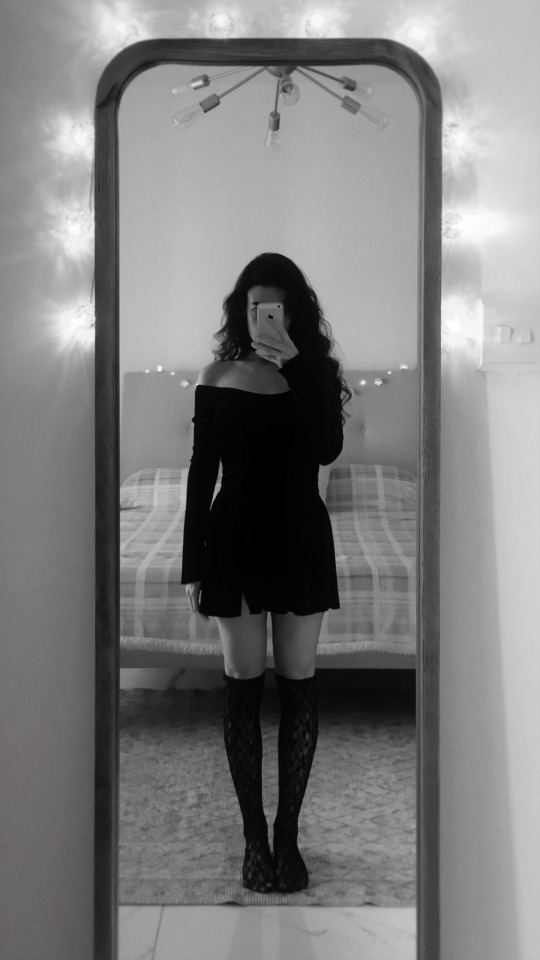
16.3.24
218 notes
·
View notes